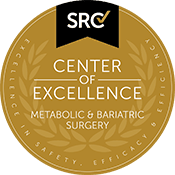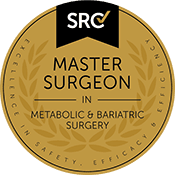
- Expertise
- Compassion
- Success
Lose the Weight and
Gain Back Your Life!
Will Gastric Bypass Help Your Medical Condition?

While weight loss is usually the primary goal of bariatric surgery, many patients also seek surgery to address health problems that make their lives more difficult. Throughout his career as a premier bariatric surgeon, Dr V. Kuzinkovas has seen many of his patients overcome medical conditions following gastric bypass surgery. Read on to see a brief list of medical conditions that can be improved with gastric bypass.
While weight loss is usually the primary goal of bariatric surgery, many patients also seek surgery to address health problems that make their lives more difficult. Throughout his career as a premier bariatric surgeon, Dr V. Kuzinkovas has seen many of his patients overcome medical conditions following gastric bypass surgery. Read on to see a brief list of medical conditions that can be improved with gastric bypass.
GERD
GERD (gastroesophageal reflux disease) is a condition in which stomach acids flow through the esophagus, causing heart burn and other unpleasant symptoms. Losing weight can help a patient to diminish or eliminate GERD, and no weight-loss procedure has been more successful at this than gastric bypass.
PCOS
PCOS (polycystic ovary syndrome) is a hormonal disorder that can negatively affect a woman’s ability to become pregnant and to maintain a steady, healthy weight. Research has shown that weight loss surgery like gastric bypass can promote the regression of several symptoms of PCOS, which can also help improve a woman’s chances of having a baby.
Gastroparesis
Also known as “delayed gastric emptying,” gastroparesis occurs when food does not progress from the stomach to the small intestine in a timely manner. Although there is nothing physically obstructing food from passing through the digestive system, damaged nerves do not communicate properly with the muscles to keep the digestion process moving. Recent research has shown not only that gastric bypass is more effective for obese patients with gastroparesis than other forms of bariatric surgery, but also that it may be safer.
IBS
A strong correlation exists between obesity and irritable bowel syndrome (IBS), a common but uncomfortable condition that affects the digestive system. Many patients who struggled with IBS have seen this condition go away after losing weight with gastric bypass.
Hernia
Weight loss has been found to shrink the size of some hernias and reduce the amount of discomfort caused by hernias, so it makes sense that bariatric surgery could help to relieve some symptoms of hernia. If you already know you have a hernia, you may be able to combine gastric bypass with hernia repair surgery so that you do not have to undergo separate procedures to improve your health.
Hypertension
Patients with obesity-related hypertension (high blood pressure) usually see a myriad of long-term benefits following gastric bypass surgery. With time, you may even be able to stop taking certain blood pressure medications, although you should continue to have your physician monitor your blood pressure, particularly as you age.
Schedule a Consultation
The bottom line is that obesity is a risk factor for a variety of medical conditions. By losing weight, you may be able to resolve these medical conditions. Although candidates for gastric bypass usually have a BMI of 40 or higher, people in the 30-40 BMI range often qualify to address other medical conditions. For a consultation at Advanced Surgicare, please call 1300-551-533.





